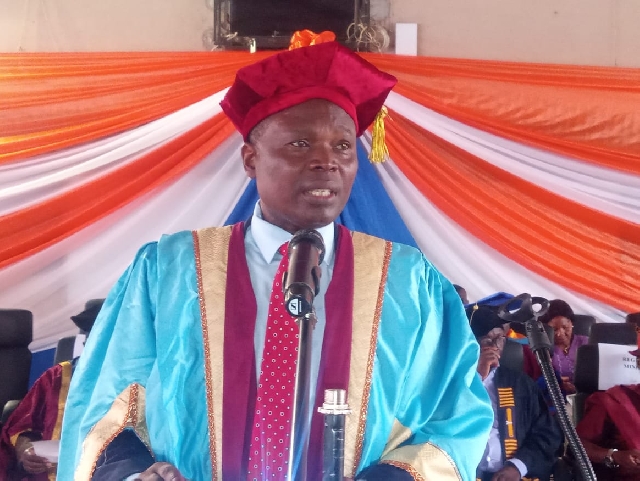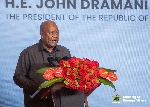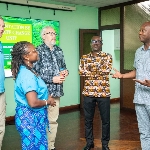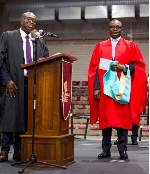BTU: Lecturers turning vehicles to makeshift offices amid severe infrastructure deficit
 Prof Samuel E. Alnaa
Prof Samuel E. Alnaa
Despite being the only technical university serving Ghana’s Upper East Region, Bolgatanga Technical University (BTU) continues to face a critical infrastructure deficit, severely impacting teaching and learning.
The Vice-Chancellor, Prof Samuel E. Alnaa, laid bare the institution’s challenges during its 13th congregation ceremony, where 676 students graduated across various disciplines.
He revealed that a lack of lecture halls and office spaces has become so dire that some lecturers are forced to use their cars and motorbikes as makeshift offices.
"The university is currently constrained in terms of limited lecture rooms and office space.
This has a telling effect on the effective delivery of lectures, as students constantly compete for space," Prof. Alnaa said.
“While management is doing everything possible within our capacity to improvise, we urge the government to quickly intervene and construct lecture halls for the university.”
According to the Vice-Chancellor, the university’s infrastructure problems date back to 2017, with successive governments failing to act despite several appeals.
He expressed dismay that a proposed lecture hall project has remained unfunded and unstarted since its conception eight years ago.
“It is very unfortunate that this critical project has not received any financial allocation.
We plead with the government to come to our aid, as the situation is very disturbing,” he added.
Even in the face of such challenges, the university marked a major milestone, graduating 676 students this year.
The graduating class comprised 389 males and 287 females.
Of these, 291 earned Bachelor of Technology degrees, 319 graduated with Higher National Diplomas, 59 with Diplomas, and 7 received Competency-Based Training (CBT) certificates.
A total of 113 students achieved First Class honours, including 37 females — a testament to academic excellence in the midst of adversity.
Prof. Alnaa used the occasion to renew calls for the government to invest more in Technical and Vocational Education and Training (TVET), especially in technical universities like BTU, if Ghana is to realise its industrialisation agenda.
“If we want the TVET sector, particularly Technical Universities, to lead Ghana’s industrialisation drive, then the government must deliberately provide the needed equipment, infrastructure, and financing,” he emphasised.
Drawing inspiration from the rapid economic transformation of the Asian Tigers, Prof. Alnaa noted that their success was largely due to bold investments in vocational and technical training.
“Let’s learn from them. A well-resourced TVET sector will equip our youth with the skills needed to thrive in this modern, technology-driven world,” he concluded.
Source: Classfmonline.com/Moses Apiah
Trending News

Ex-footballer says he was wrongfully jailed after ‘hook-up’ encounter; claims police freed key suspect after allegedly taking bribe
12:38
Mahama to receive landmark Constitutional Review report on December 22
12:38
Forestry Commission hosts students from Finland and UCC
13:15
Former PNC flagbearer urges NDC to step aside in Kpandai rerun
12:49
Ghana, Qatar begin full implementation of labour mobility agreement
13:48
NDC Legal Director expresses concern over confusion surrounding Daddy Lumba’s funeral
12:20
Energy Minister bags PhD in Development Finance from University of Stellenbosch
12:28
CCAL proposes Atewa centenary and green festival to Okyenhene
13:06
Ghanaians happy with NDC’s first-year performance — Party communicator claims
12:38
Solomon Owusu claims NPP is seeing defeat in Kpandai re-run
13:28




